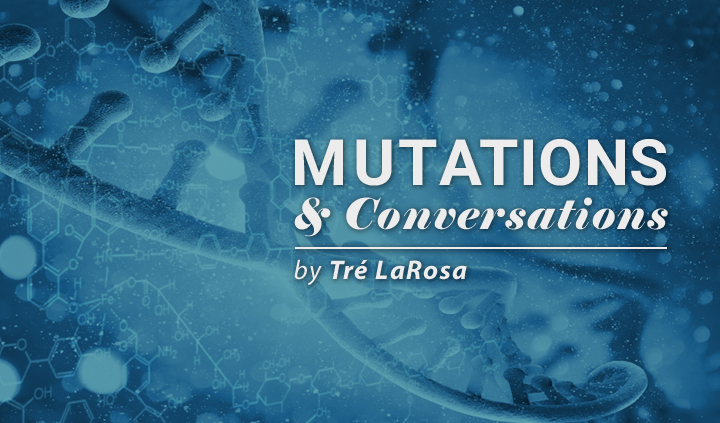Our Relationships with Our Doctors Are Stronger When We Self-advocate

Doctors receive training in particular specialties and, in some cases, subspecialties. But “specialties” and “subspecialties” can be described as a “broad array of diseases” and “broad array of fewer diseases.” I’m not trying to dismiss the expertise of medical professionals or reduce them to their skill sets. I’d never argue that doctors aren’t critical players in their patients’ care. However, while they know a lot of important information, they can’t be omniscient experts on every patient’s case. Those of us with chronic illnesses are the experts in our care. Our opinions should be central to our treatment decisions. We may not be able to provide sweeping advice on how to care for others with our diseases, but we must be confident in our ability to self-advocate.
The patient-doctor relationship should be a collaborative and complementary one. In its ideal form, doctors act as educators and active participants in our care. They ensure that we are aware of the significance of our disease, help us to understand all of the treatment options available to us, and advise us about what they believe to be the best care plan for our needs. Then, if it’s a healthy partnership, the patient should be trusted to make decisions about their care. (I’d like to clarify something here: Patients are individuals, outside of their diseases. I realize that by using the descriptor “patient” here, I risk reducing the person to their status as a “case,” rather than a fully-realized adult human being.)
Ask questions and share your knowledge of Cystic Fibrosis in our forums.
The core element of a patient-doctor relationship is trust. The doctor learns to trust that the patient understands the magnitude of their situation — something with which they’ve been dealing their entire life. And a patient understands why this person is taking care of them. After all, they attended medical school and studied for many years after graduating. Both parties must suspend some of their desire for control.
I don’t know if my relationship with my care team solidified during a single appointment. But I do recall feeling comfortable with my doctor when he gave me his phone number. His gesture showed that he trusted me to take the responsibility seriously. Then I began to realize that my appointments weren’t meant to be draining or scary. My doctor and the other members of my care team wanted to support me to ensure that my health stayed in peak condition. My care team got to know my family and me, and they would ask me how classes were going and about other events in my life.
Once I believed that they trusted in and cared about me, I could be honest with them. I didn’t always fully agree with their assessment of my health. In some cases, my lung function may have been down 4 percent — around the margin of error for pulmonary function tests — and I sounded a bit crackly, but otherwise felt fine. In those circumstances, my doctors’ would advise a tuneup. When I was younger, I believed that my doctors’ words were final. If they recommended a tuneup, I’d rely on their expertise and go along with their plan. But later I began to think, “It’s my life.” Sometimes tune-ups don’t fit into my schedule. So I’d push back. I’d ask if they’d be comfortable with letting me try an oral antibiotic or adding a treatment, extra exercise, and sinus rinses to my regimen, and see how I am in six weeks. My care became an exercise in working together. Once the relationship was established, it was reinforced by collaboration.
Of course, these relationships don’t develop overnight — they take months and years and many visits and conversations to cultivate. There is no proven recipe for success. Some people won’t get along with their doctors and vice versa. That’s OK. In most cases, switching physicians shouldn’t be outside the realm of possibility.
It’s overwhelming when your entire existence is predicated on your life as a patient. Having a difficult relationship with your physician further complicates matters. Believing in yourself, understanding the complexities of your disease, and developing the language to communicate your concerns are all critical components of self-advocacy. After all, if you won’t advocate for yourself, who will?
Follow along with my other writings on my humbly named site, www.trelarosa.com.
***
Note: Cystic Fibrosis News Today is strictly a news and information website about the disease. It does not provide medical advice, diagnosis, or treatment. This content is not intended to be a substitute for professional medical advice, diagnosis, or treatment. Always seek the advice of your physician or other qualified health provider with any questions you may have regarding a medical condition. Never disregard professional medical advice or delay in seeking it because of something you have read on this website. The opinions expressed in this column are not those of Cystic Fibrosis News Today, or its parent company, Bionews Services, and are intended to spark discussion about issues pertaining to cystic fibrosis.








Michael Vanderhorst
I've been experiencing a dehabiltating neurogenic atrophy in my legs and have upper body spasticity which is all idiopathic. In this long journey I've learned a great Dr will totally respond favorably if you show your devotion and advocacy on solving you're own problems. Unless they are arrogant however than your educated description of your condition will be met with dismissiveness which is ultimately damaging to a patient with a worsening neurological problem they think I have time but too late for mitigation.